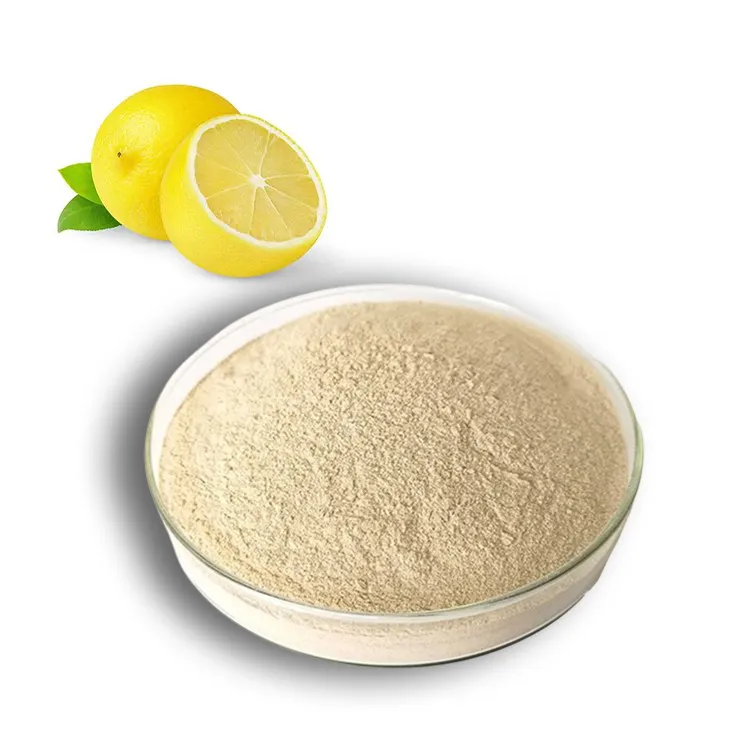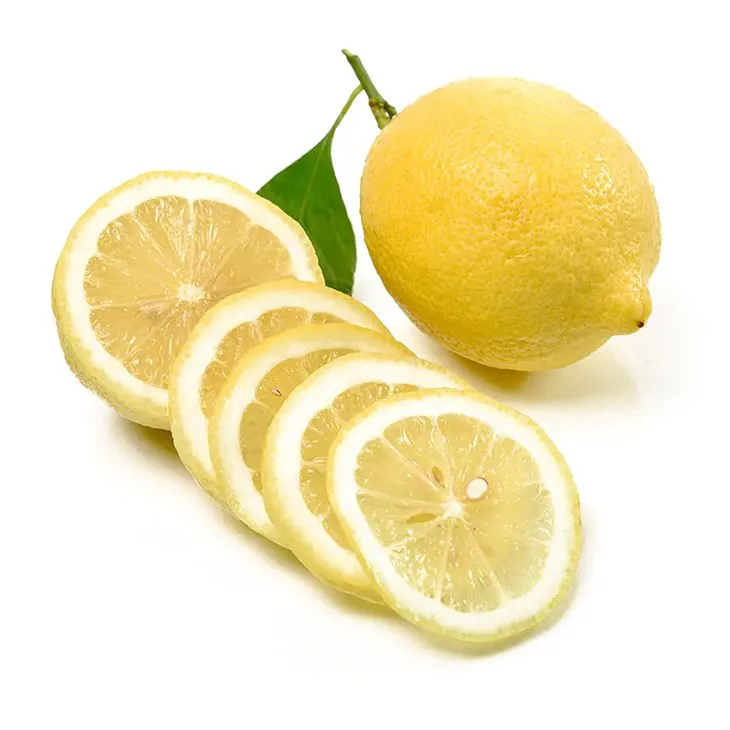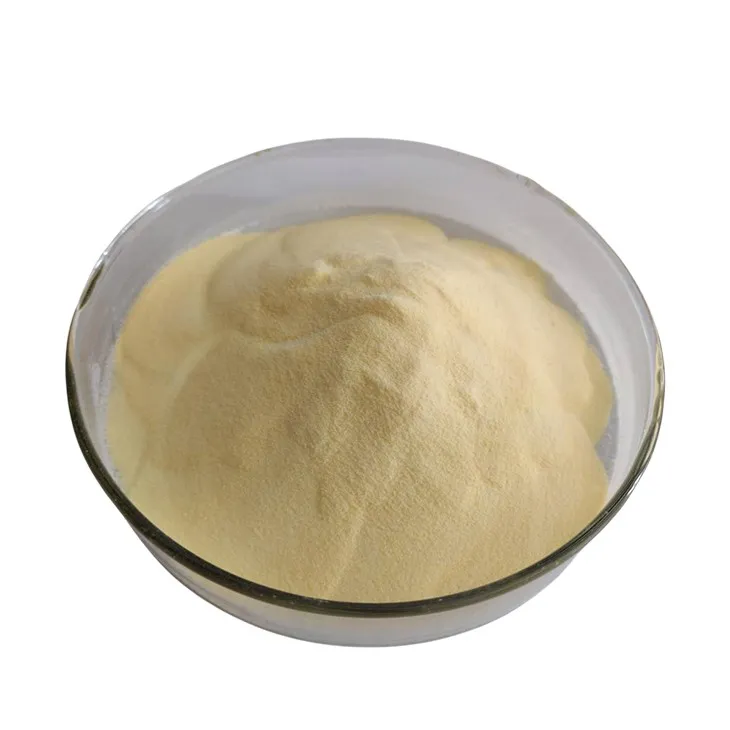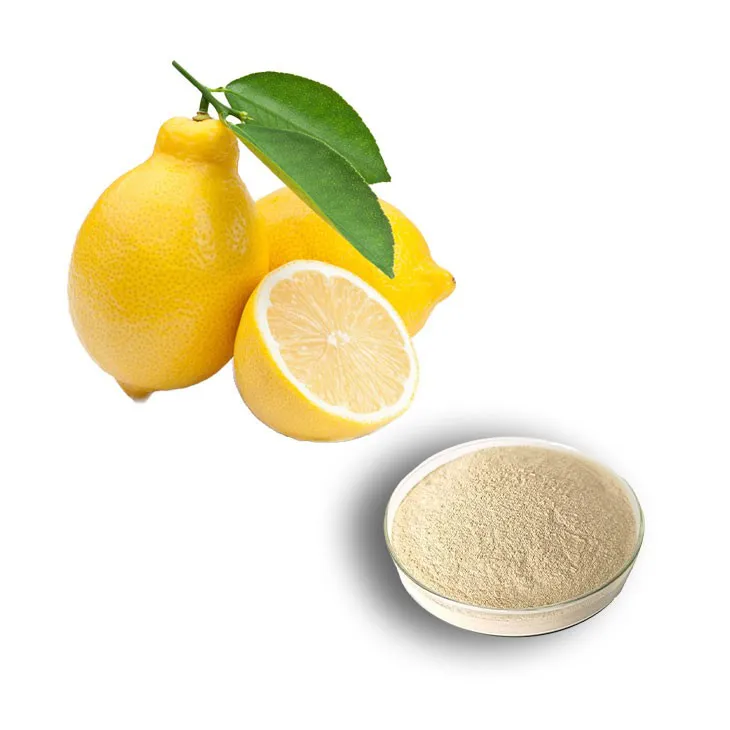- 0086-571-85302990
- sales@greenskybio.com
4 Things Consumers and Manufacturers Should Know about Lemon Extracts
2024-12-16

1. The Role in Promoting Product Freshness and Shelf - life
Lemon Extract is a powerful ingredient when it comes to enhancing the freshness and extending the shelf - life of products. For manufacturers in the food industry, it can be a game - changer.
In the case of baked goods such as cakes and muffins, Lemon Extract can add a refreshing flavor that gives the impression of freshness even days after baking. This is because the citrusy aroma of lemon is associated with freshness in our minds. Moreover, the natural acids present in Lemon Extract can act as a preservative to some extent. They can inhibit the growth of certain bacteria and molds that might spoil the product.
For products like salad dressings, lemon extract not only imparts a tangy and pleasant taste but also helps in keeping the dressing fresh for a longer period. The acidity of the lemon extract can prevent the growth of harmful microorganisms that could cause spoilage.
Consumers should also be aware of this aspect. When purchasing products that contain lemon extract, they can expect a certain level of freshness and longer usability. For example, a lemon - scented cleaning product may stay effective for a longer time due to the presence of lemon extract, which has antimicrobial properties. This means that the product can keep the surfaces clean and free from germs for an extended period.

2. Different Grades of Lemon Extract and Their Corresponding Uses
Lemon extract comes in different grades, and understanding these grades is crucial for both consumers and manufacturers.
High - Quality, Pure Lemon Extract
This grade of lemon extract is made from the finest lemons and is often more expensive. For manufacturers, it is ideal for high - end products. For example, in the production of luxury perfumes, high - quality lemon extract can provide a natural and long - lasting lemon scent. In the food industry, it can be used in premium confectionery items like high - end chocolates or gourmet ice creams. The pure and intense flavor of this grade of lemon extract can enhance the overall taste profile of these products without any artificial aftertaste.
Consumers who are looking for the best quality products, especially those with a strong emphasis on natural ingredients, should look for products that contain high - quality lemon extract. For instance, when purchasing a high - quality lemon - flavored tea, a pure lemon extract can provide a more authentic and refreshing taste compared to products that use artificial lemon flavorings.
Standard - Grade Lemon Extract
Standard - grade lemon extract is more commonly available and is suitable for a wide range of applications. In manufacturing, it can be used in mass - produced food items such as cookies, candies, and general - purpose salad dressings. It provides a good balance between cost and flavor.
For consumers, this is the type of lemon extract that they are most likely to encounter in everyday products. For example, a standard - grade lemon extract can be used in a home - made lemonade recipe to give it a pleasant lemon flavor. It is also often used in commercial lemon - flavored beverages that are sold at a more affordable price point.
Low - Grade or Imitation Lemon Extract
Low - grade lemon extract or imitation lemon extract is usually made with a combination of artificial flavors and a small amount of natural lemon components. For manufacturers, it may be used in very low - cost products where the focus is on achieving a basic lemon flavor at a minimal cost. However, these products may not have the same depth of flavor or quality as those made with higher - grade extracts.
Consumers should be cautious when purchasing products that contain low - grade or imitation lemon extract. These products may not provide the true lemon experience and may have an artificial or chemical - like taste. For example, some cheap lemon - scented cleaning products may use low - grade lemon extract, which may not be as effective in providing a pleasant and long - lasting lemon scent as products made with higher - grade extracts.

3. The Importance of Sustainable Sourcing for Manufacturers
Sustainable sourcing of lemon extract is of utmost importance for manufacturers.
Environmental Impact
Lemons are grown in specific regions, and the way they are sourced can have a significant impact on the environment. Sustainable farming practices ensure that the land used for lemon cultivation is maintained in a healthy state. This includes proper soil management, water conservation, and reduced use of pesticides and fertilizers. For example, by using organic farming methods, manufacturers can ensure that the lemon extract they source is not only of high quality but also environmentally friendly.
Additionally, sustainable sourcing can also help in reducing the carbon footprint associated with the production and transportation of lemon extract. If manufacturers source lemons from local and sustainable farms, it can reduce the distance that the raw materials need to travel, thereby reducing emissions from transportation.
Social and Ethical Considerations
When manufacturers source lemon extract sustainably, they are also contributing to the well - being of the local communities where the lemons are grown. This includes providing fair wages to the farmers and workers involved in the lemon - growing process. It also ensures that the working conditions are safe and ethical.
Moreover, sustainable sourcing can help in the long - term viability of the lemon - growing industry. By supporting sustainable practices, manufacturers are investing in the future of lemon production, which can lead to a more stable supply of lemon extract in the long run.
Meeting Consumer Demands
In today's market, consumers are increasingly conscious about the environmental and social impact of the products they purchase. By sourcing lemon extract sustainably, manufacturers can meet these consumer demands and gain a competitive edge. For example, a brand that promotes its use of sustainable lemon extract is more likely to attract environmentally - conscious consumers who are willing to pay a premium for products that are produced in an ethical and sustainable manner.

4. Consumers Should be Aware of the Proper Storage and Handling of Lemon Extract
Proper storage and handling of lemon extract are essential for consumers to maintain its quality.
Storage Conditions
Lemon extract should be stored in a cool, dark place. Exposure to heat and light can cause the extract to degrade, leading to a loss of flavor and effectiveness. For example, storing lemon extract near a stove or in direct sunlight can cause the volatile compounds in the extract to evaporate, resulting in a less intense lemon flavor. It is best to store it in a pantry or a cupboard away from heat sources.
Additionally, lemon extract should be stored in a tightly sealed container. This helps to prevent air from getting in, which can also cause oxidation and spoilage. If the container is not sealed properly, the lemon extract may develop an off - flavor or become rancid over time.
Handling Precautions
When using lemon extract, consumers should use clean utensils. This helps to prevent contamination of the extract. For example, if a dirty spoon is used to measure out lemon extract, it can introduce bacteria or other impurities into the extract, which can then spoil the remaining extract.
Also, it is important to follow the recommended usage amounts. Using too much lemon extract can overpower the other flavors in a recipe, while using too little may not achieve the desired lemon flavor. For example, in a baking recipe, adding too much lemon extract can make the final product taste overly sour, while adding too little may result in a barely noticeable lemon flavor.

FAQ:
Q1: How does lemon extract promote product freshness and shelf - life?
Lemon extract contains natural antimicrobial and antioxidant properties. The antimicrobial properties can inhibit the growth of bacteria, fungi, and other microorganisms that cause spoilage. The antioxidants in lemon extract, such as citric acid and flavonoids, prevent oxidative reactions that can lead to rancidity or deterioration of products. This helps in maintaining the freshness and extending the shelf - life of various products like food, cosmetics, and some household items.
Q2: What are the different grades of lemon extract and how are they used?
There are generally different grades of lemon extract based on factors such as purity, concentration, and extraction methods. High - grade lemon extract, which is often more pure and highly concentrated, is typically used in high - end food products like gourmet desserts, high - quality beverages, and fine - grade perfumes or cosmetics where a strong and pure lemon flavor or aroma is desired. Medium - grade lemon extract may be used in more common food products like regular bakery items, some household cleaning products with a lemon scent. Lower - grade lemon extract might be used in products where a more diluted or less intense lemon essence is sufficient, such as some mass - produced and budget - friendly food items or general - purpose cleaners.
Q3: Why is sustainable sourcing important for manufacturers of lemon extract?
Sustainable sourcing of lemon extract is crucial for manufacturers for several reasons. Firstly, it helps in conserving the environment. Lemons are sourced from lemon trees, and sustainable farming practices ensure that the soil quality, water resources, and biodiversity in the lemon - growing regions are maintained. Secondly, it guarantees a long - term supply of lemons. If manufacturers engage in non - sustainable sourcing, it can lead to over - exploitation of lemon resources, resulting in a decline in lemon production in the long run. Thirdly, it meets the increasing consumer demand for sustainable products. Consumers are more likely to choose products made from sustainably sourced ingredients, which can enhance the marketability of products containing lemon extract.
Q4: How should consumers properly store and handle lemon extract?
Consumers should store lemon extract in a cool, dry place away from direct sunlight. It is best to keep it in a sealed container to prevent evaporation and contamination. When handling, make sure to use clean utensils to avoid introducing bacteria or other contaminants. Also, it should be kept out of reach of children as it may be harmful if ingested in large amounts. Additionally, once opened, it should be used within a certain period according to the product instructions to ensure its quality and effectiveness.
Q5: Are there any regulations regarding the production and use of lemon extract?
Yes, there are regulations regarding the production and use of lemon extract. In the food industry, for example, lemon extract used as a food additive must comply with food safety regulations. This includes limits on certain substances like heavy metals, pesticides residues, and requirements for proper labeling. In the cosmetics industry, it must meet the safety standards for cosmetic ingredients, ensuring that it does not cause skin irritation or other adverse reactions. There may also be regulations regarding the extraction methods to ensure the quality and purity of the lemon extract.
Related literature
- The Role of Lemon Extract in Food Preservation"
- "Grading and Quality Standards of Lemon Extracts in the Cosmetic Industry"
- "Sustainable Sourcing of Botanical Extracts: A Case Study of Lemon"
- "Proper Storage and Handling of Flavor Extracts: Focus on Lemon"
- ▶ Hesperidin
- ▶ citrus bioflavonoids
- ▶ plant extract
- ▶ lycopene
- ▶ Diosmin
- ▶ Grape seed extract
- ▶ Sea buckthorn Juice Powder
- ▶ Beetroot powder
- ▶ Hops Extract
- ▶ Artichoke Extract
- ▶ Reishi mushroom extract
- ▶ Astaxanthin
- ▶ Green Tea Extract
- ▶ Curcumin Extract
- ▶ Horse Chestnut Extract
- ▶ Other Problems
- ▶ Boswellia Serrata Extract
- ▶ Resveratrol Extract
- ▶ Marigold Extract
- ▶ Grape Leaf Extract
- ▶ blog3
- ▶ blog4
- ▶ blog5
-
Pure 85% Tomentil Extract.
2024-12-16
-
Hops Extract
2024-12-16
-
Citrus Aurantium Extract
2024-12-16
-
Polygonum multiflorum extract
2024-12-16
-
Propolis Extract Powder
2024-12-16
-
Calendula Extract
2024-12-16
-
Scutellaria Extract
2024-12-16
-
Genistein
2024-12-16
-
Soy Extract
2024-12-16
-
Saponin Extract
2024-12-16
-
Saw Palmetto Extract
2024-12-16





















